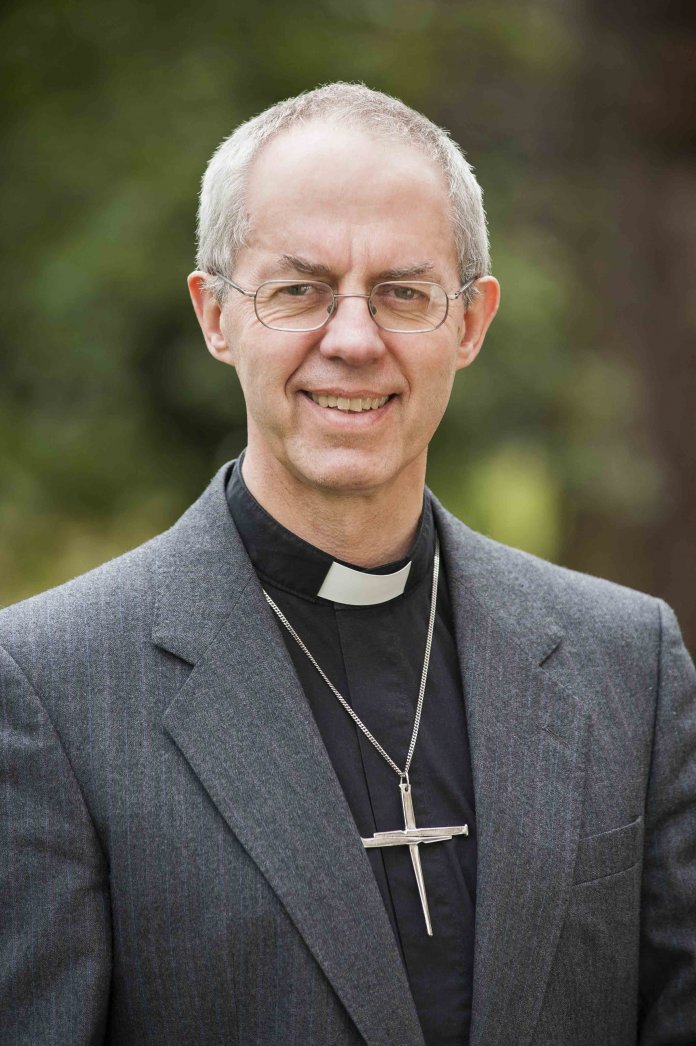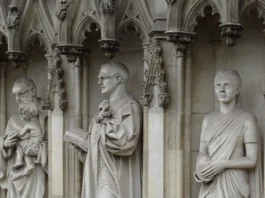Earlier this year, I attempted to visit the Darien Gap in Central America. With its 165 miles of dense jungle, connecting Panama with Colombia, it is one of the world’s most concentrated areas of flora and fauna – and also a very dangerous migration route.
But it being one of the most inhospitable terrains in the world does not stop hundreds of thousands of migrants from making the perilous journey northwards every year, driven from their homes, families and ordinary lives by the brutal effects of conflict, poverty and climate change.
For us, the weather was too bad to make a safe landing in the region, and after 15 minutes we turned back. Unlike those who have no choice but to persevere, how privileged we were to have the option of abandoning the attempt and returning to safety just moments later.
Closer to home, and on recent trips within England, I have heard first hand from farmers in the Dioceses of Gloucester and Bath and Wells how they are being forced to adapt to a changing climate – how unseasonal amounts of rainfall or scorching temperatures are destroying crops and making production and harvests far harder to plan and profit from.
Our world is becoming increasingly less resilient. Within the Anglican Communion, almost half of the members live amid conflict or persecution. The Covid-19 pandemic taught us, with terrifying speed, the fragility of our healthcare systems and social settings, and the impossibility of a sustainable model of isolation. The war in Ukraine has shown us how quickly a cost-of-living crisis can be provoked. Meanwhile, natural disasters in the form of floods, cyclones and storms are triggering mass displacement of people across the planet.
The destruction of our planet and God’s creation is nothing new. Right at the very beginning of the Bible, the story of the Garden of Eden and of Adam and Eve speaks profoundly about the consequences of pride, self-sufficiency and rebellion against God.
Eden is painted as a place of justice, of equality, of walking closely with God, and where work was a gift rather than a curse. It was a place of harmony with nature – and yet humans, tasked with the responsibility of stewarding it, cut themselves off from the blessings the creation is designed to offer.
But that is not where the story ends, and God shows us that when we act as if we are at war with the world, there is hope of reconciliation through Jesus, who opened the way for the whole of creation to be healed.
God is green, and He calls on us to be green. God created the world and saw it as good, but human beings have spoiled it by sin. You do not have to be a literalist to see the deep meaning in the Genesis story. It is therefore vital that we tread carefully, and respond to the urgency of the climate emergency, and curb the effects of climate change.
This means waking up to the reality of the crisis. It dismays me when I hear Christians disputing scientific facts or saying that it is simply God’s problem. That is to misunderstand the awesome responsibility that God entrusted us with in caring for his planet and its people. It is a moral imperative to do as much as we can not to destroy the green world that God created for us. And we must act now, before it is too late.
The American lawyer and environmentalist Guy Speth said: “The top environmental problems are selfishness, greed and apathy, and to deal with these we need a cultural and spiritual transformation. And we scientists don’t know how to do that.”
This therefore is a moral as well as a practical challenge, and Christians must rise to it, not avoid it. In El Salvador, I saw the church leading initiatives on the ground with the planting of an Anglican Communion Forest, part of a global movement to grow trees and restore ecosystems.
From reforestation in the Solomon Islands and the introduction of coffee plantations in Papua New Guinea, to the planting of two million trees in Kenya and the restoration of mango groves in Eswatini, Christians are responding to the call to restore creation and preserve biodiversity for future generations.
Here in England, our church is committed to pursuing a net zero strategy. In 2020, the General Synod voted for the whole church to achieve net zero by 2030 – recognising that the climate emergency is a crisis for God’s creation and a fundamental injustice. Since then, work has started to reduce carbon emissions in our buildings, from schools and churches to cathedrals.
We must seek to persuade the powerful that it is in their interest to do good and be green. Some never will, and we have to accept that. Cynics – some of whom even call it a “hoax” – will accuse us of interfering in politics. If it is interfering to seek to avert the catastrophe of climate change, especially as it affects the poorest, then let us interfere. I call it humanitarian care.
We are not being performative; when we hear the command of Christ to treasure God’s creation, we seek to obey.




[…] View Reddit by AngelaMotorman – View Source […]